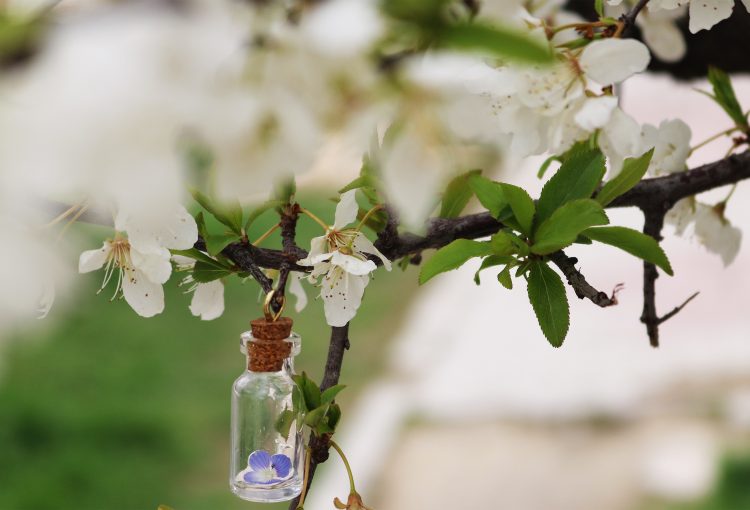This article is part of our new series, Getting Started With Homeopathy. To read the rest of the articles in the series, click here.
By Haroula Battista, Hon. BSc., DHMHS, HOM, Ontario College of Homeopathic Medicine, @homeopathy_school_in_toronto
“In the healthy condition of man…rules with unbounded sway, and retains all the parts of the organism in admirable, harmonious, vital operation, as regards both sensations and functions, so that our indwelling, reason-gifted mind can freely employ this living healthy instrument for the higher purpose of our existence”
-Samuel Hahnemann
What does it mean to be healthy? The World Health Organization (WHO) defines health as a state of complete physical and social wellbeing and not merely an absence of disease or infirmity. However, the prominent medical model of the west has focused on the body as something that requires fixing when broken with an emphasis primarily on physical disease and individual systems; not the body as a whole. A person’s mental/emotional state is rarely considered in the diagnosis of a physiological condition, nor are preventative measures considered when it comes to practicing good health. The current medical model therefore measures health by the absence of physical disease and a high level of physical functioning.

In 1984, the WHO proposed moving away from viewing health as a state and toward thinking of health as a dynamic model that presented as a process or a force. This is closer to a holistic system of medicine and certainly in line with Homeopathic thought.
So, how does one know if they are healthy? The body expresses signs and symptoms to communicate with us. It not only expresses its state of balance but also indicates when something may not be quite right. Homeopaths hang their hat on the idea that health is intangible, with ebbs and flows, that health as a dynamic entity, all-encompassing of the mental, emotional, spiritual and physical parts.
Since one’s state of health is dynamic, it goes to follow that the effective method of treatment must also be dynamic. One dynamic system needs another dynamic system to help it in health and in overcoming disease. What medicine is dynamic, therefore? Homeopathy, of course! Thus health, disease and cure all operate on the dynamic plane…like a force; so the cure must be dynamic, as well.

How does homeopathy work?
Homeopathy is a natural system of medicine that was conceptualized by Dr. Samuel Hahnemann in 1796. It is the longest established “alternative” system of medicine and it is estimated that homeopathy is used by over 200 million people worldwide. It follows the concept of minute doses of substances used to stimulate the innate healing capacities of the body. The dosage concept of the infinitesimally small dose is one of the basic principles of homeopathy. The Arndt-Schultz Law provides justification for the use of minute doses and states that small doses of drugs encourage life activity, large doses impede life activity, and very large doses destroy life activity. Therefore, the function of the dose of the drug is inversely proportional to the effect of the drug. Apart from their therapeutic effectiveness, minute homeopathic dosages render even the most toxic substances safe and free of side effects.
Different than the allopathic system of medicine that prescribes based on the principle of “contraries” – to oppose a pathological process that is taking place in a patient’s body, homeopathy works WITH the patient and encourages the body to work out its presenting symptoms and get past them. Homeopathy comes from the Greek words homeo and pathos, that when broken down mean “similar suffering”. Homeopathy does not make a person comfortable without addressing the cause, nor does it suppress a patient’s symptoms.
The “DIS-EASE” of the patient is what a Homeopath looks for, to observe how the body is expressing itself…uniquely. Identifying peculiar symptoms that are distinctive in each patient is most important in a homeopathic consultation. Homeopathy is individualized medicine, each patient receiving a specific homeopathic medicine that is chosen for them. Therefore, patients with the same condition are often given different medicines, ones that are suited to them specifically. A homeopath will also examine the mental/emotional state of each patient to assess their temperament and idiosyncrasies when prescribing. Since we are whole individuals and not simply the sum of parts, the whole individual patient is treated.
The pharmacology of homeopathic medicines reveals affinities for certain glands, organs or tissues, which suggests their possible use. Similarly, many homeopathic medicines are closely related to the physical, mental and emotional characteristics of the patient, and this again influences their use. From these considerations, we can derive the homeopathic drug picture, which must be matched with the state of the patient for a successful outcome.

Homeopathic medicines are safe, effective (with many scientific research studies to back their effectiveness), do not interfere with other therapies, are readily available and affordable, are not tested on animals, are non-addictive and are part of a holistic system of medicine; one where each patient is treated individually. They can be made from, Plant, Animal, Mineral, and Imponderable substances; there are over 8000 remedies that one can choose from in our materia medica at this time!
Both acute and chronic diseases are responsive to treatment with homeopathy. The symptoms that arise in acute cases are usually self limiting. In order to be able to prescribe a homeopathic medicine successfully, one must understand how the medicine works (through provings, clinical, toxicological data), they must have a good understanding of the pathology of the patient (the disease) and must understand how to implement a specific medicine for that patient’s state of health (or “dis-ease”). Please note, chronic conditions are more complex and should be addressed by a qualified homeopath.
With homeopathy gaining popularity worldwide, your new found knowledge on how homeopathy works, and with its exceptional track record, you are invited to consider its therapeutic qualities the next time you need some help with your state of health.
Sharing is caring!
